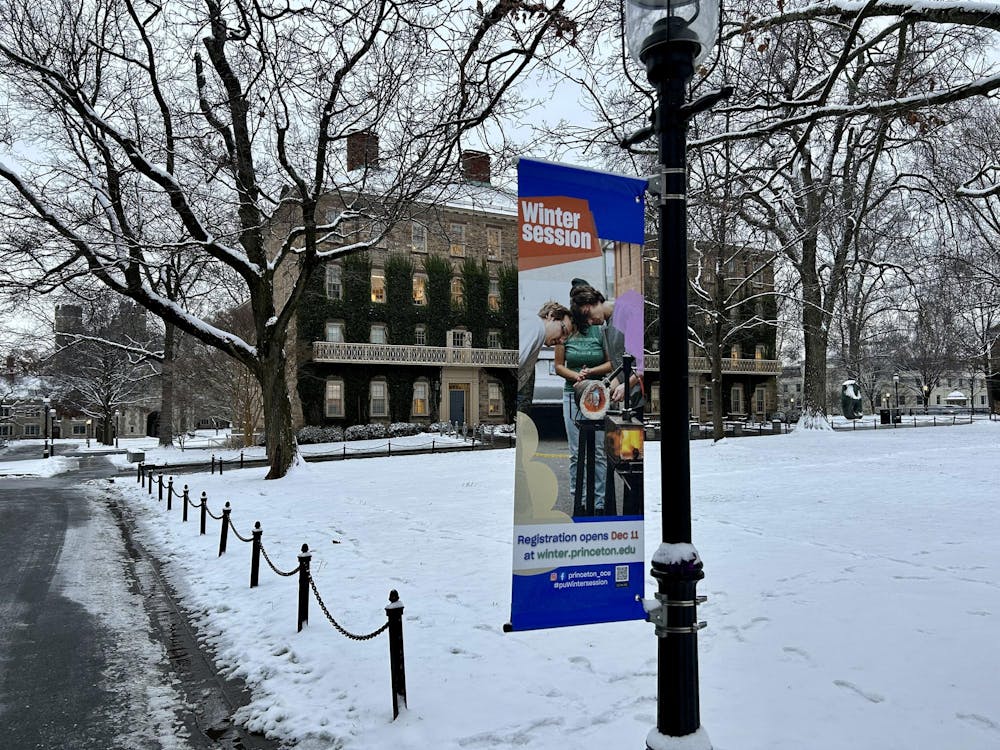In the spring of 2017, Ivy Club attempted to streamline its Bicker process.
The club created a website where sophomores could sign up for Bicker, members could submit their cards about the bickerees, and officers could download and view the cards.
The cards contained a comment about each bickeree and a score that ranked the bickerees from a scale of one to five.
“There wasn’t a lot of energy in our conversation from the get-go, but it was also stymied by the fact that it took about 10min for her to describe her day, and while I’m all for a wild story, [I] wasn’t super impressed by minutiae of lunch,” wrote one Ivy member, who gave their bickeree a score of three.
The cards were intended to be confidential.
On Monday, Feb. 4, however, it was initially reported that many Bicker cards for that spring were stored on GitHub, a web-based hosting service, and had been publicly accessible for an indeterminate period of time.
On Wednesday, Feb. 6, an anonymous person submitted a 276-page document that contained 1,460 Bicker cards from the February 2017 Bicker to Tiger Confessions, a Facebook group where members can submit anonymous confessions.
As of Feb. 8, there are 3,575 members in the group.
The files on both GitHub and Tiger Confessions have been removed.
Ivy confirmed to The Daily Princetonian that the Bicker cards uploaded to Tiger Confessions were the same ones publicly accessible on GitHub. Ivy also noted that both files on GitHub and Tiger Confessions are incomplete but did not reveal how many cards were written during the spring 2017 Bicker process.
“In light of the private information that has become available, we deeply regret our failure to safeguard such data. We have taken steps to ensure that this can never happen again,” the club wrote in a statement to the ‘Prince.’
In the statement, Ivy explained that a website was created in the spring of 2017 to facilitate the admissions process. The club emphasized that the included information “only represents a portion of the information used in The Ivy Club’s discussion process for admissions.”

The club did not elaborate on the other aspects of its discussion process.
The ‘Prince’ was able to identify the owner of the account, a former member of Ivy who spoke to the ‘Prince’ under the condition of anonymity.
“As a student, I contributed to the development of an application in 2017 to help streamline the process of Bicker,” the owner of the account said. “The logic and the code for the application were hosted on a GitHub account associated with my name. It was my and others’ understanding that no private data was stored there.”
After graduation, the person “handed over the maintenance of the account and repository.” The account owner only recently learned that the data was accessed and emphasized that the data was released without their knowledge or consent.
In a statement to the ‘Prince,’ Interclub Council (ICC) president Hannah Paynter ’19 noted that each club is responsible for its own data privacy practices and that the ICC will prioritize discussion of data security and “help clubs review their data security if requested.”
“The privacy of student information is paramount, and publishing personally identifiable data would be considered a serious breach of individual privacy,” Paynter wrote.
Tiger Confessions published a partially redacted document of the Bicker cards. The individual who submitted the document intended to redact the full names of the bickerees and to keep the first names of the bickerers. Several names in the document and other identifying information, however, were left unredacted.
According to the document, the anonymous poster submitted the Bicker cards to Tiger Confessions in order to allow the University community “to understand the eeriness of writing about one’s peers based on a circumstance not conducive to camaraderie, companionship, or community — what happens within the belly of an exclusive and judgmental system.”
The anonymous poster inaccurately claimed that they were publishing “the rest of Ivy Club’s 2017 bicker cards” two days after the University Press Club “published a small pool” of the cards.
The person also attached an excerpt of an Emily Dickinson poem at the end of the document.
“Hope is the thing with feathers, / That perches in the soul, / And sings the tune without the words, / And never stops, / at all,” the person cited.
Ty Ger, the pseudonym used by the moderator of the Facebook group, did not respond to multiple requests for comment by the time of publication.
The cards
The partially redacted document submitted to Tiger Confessions comprised 1,460 Bicker cards comprised .
An analysis of the data set conducted by the ‘Prince’ reveals that 70 percent of the cards featured the highest scores of four or five. The average score among the Bicker cards released was a 3.92.
Relevant statistics are listed at the end of this piece.

The reasons for giving a bickeree a certain score, however, varied by bickerer. The cards include not only comments on the bickeree’s appearance, ethnicity, and race, but also comments on the substance of the conversation and the bickeree’s potential involvement with the club. For instance, some club members attempted to predict whether bickerees would spend much of their time in the club if admitted.
“Talked religion … what it means to develop a close friendship, what it means to be scared, what it means to be vulnerable, what it means to have fun, what place region has in helping us figure out our morality. He was willing to shoot the shit and then discuss extremely personal topics…. I so dearly hope he will be a member,” wrote one bickerer, who gave the student a score of five.
“I was impressed by her apparent commitment to being fully upfront and genuine. She seemed like she has truly loved getting to know new people and the things that make them tick during this bicker process, encouraging me to blab about my thesis, for example,” another member, who gave this bickeree a score of four, wrote.
Other club members had asked their bickerees to perform certain tasks.
“I did a double bicker and made her enact what she would do if she were to aggressively hit on a guy on the TI [Tiger Inn] dance floor, and she gave a stellar performance,” a member, who gave the bickeree a score of five, wrote.
In the document, “Double Bicker” involves two members interviewing two bickerees.
In another case of double Bicker, one member commented that a bickeree would do great in the club, since, when asked “to roast” the other bickeree, “he had some great material.”
This bickeree received a score of five.
Students had mixed reactions to the leak itself.
Jack Edmondson ’21, who plans on signing into an eating club, was not surprised that the information was leaked.
Mikkey Clarke ’19, however, said that the leak was a violation of students’ privacy. Clarke is a member of Cannon Dial Elm Club.
“The leak is kind of a breach of privacy for both the bickerees and the [interviewers]. I don’t think this leak will directly influence Cannon’s bickering process, but I do know that it will help to keep all of the Bicker clubs in check,” Clarke said.
Some students view the cards as reflecting an unavoidable aspect of the Bicker process.
“I’m not morally opposed to the [Bicker] process, but there’s only so much you can do to evaluate someone in a short period of time, and I think that it blends itself naturally to issues of stereotyping,” Edmondson said.
Evelyn Karis ’19 echoed Edmondson. Karis believed that other eating clubs that rely on a Bicker system likely possess similar material.
Karis is currently a member of Colonial Club and a previous member of Tower Club. She also participated in a co-op and was independent.
“I wasn’t really surprised by the contents of any cards,” said Karis. “If you were to look at the contents of other Bicker clubs’ discussions, they would probably have similar sentiments.”
The ‘Prince’ refrained from publishing the leaked document to respect the privacy of students either named within the document or identifiable based on unredacted information.
This story has been updated to reflect that neither the GitHub file nor the Tiger Confessions document contained all of the cards from The Ivy Club’s spring 2017 Bicker process. The ‘Prince’ regrets the error.
Scoring statistics:
Mean Score: 3.92
Standard Deviation: 0.92
Number of Cards: 1460
Percent of 5s: 29.38%
Percent of 4s: 40.96%
Percent of 3s: 22.60%
Percent of 2s: 6.10%
Percent of 1s: 0.96%








